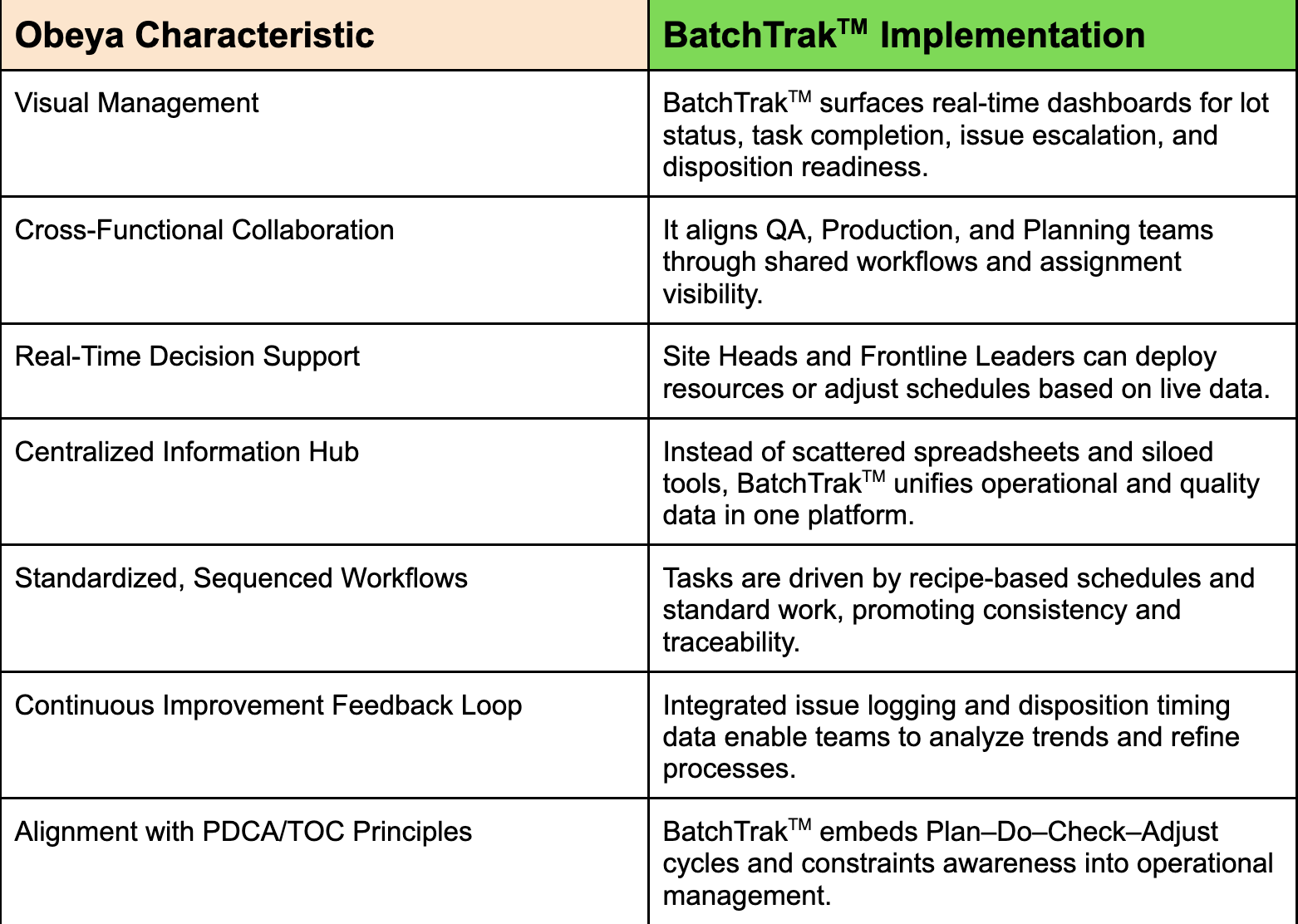
BatchTrak - Is it an Obeya Room?
Key Characteristics of an Obeya Room:
- Visual Management: Walls (physical or digital) are covered with charts, schedules, KPIs, risk maps, and action items.
- Cross-Functional Collaboration: Brings together team members from different departments to align on goals, progress, and problem-solving.
- Real-Time Decision Making: Encourages faster issue resolution and accountability by making all project data visible and accessible.
- Frequent Stand-Ups or Huddles: Teams meet regularly in the space to update status, address roadblocks, and ensure alignment.
Purpose:
- Accelerate planning and execution
- Improve transparency and communication
- Support continuous improvement and PDCA cycles (Plan–Do–Check–Adjust)
Origin:
- Developed by Toyota during product development to enable better coordination and faster innovation.
Example Use Cases:
- New product development
- Strategic initiatives
- Operational transformation programs
- Daily or weekly performance reviews in manufacturing
Is BatchTrakTM an Obeya Room and/or Share Obeya Room Concepts?
Yes, BatchTrak™ shares several key characteristics with an Obeya room, especially when viewed through the lens of visual management, real-time coordination, and cross-functional alignment in a batch-based manufacturing environment.
How BatchTrakTM Functions Like an Obeya Room:

Summary:
While BatchTrak™ is not a physical room, it digitally embodies the intent of an Obeya room - enabling fast, informed, cross-functional decision-making through shared visibility and structured collaboration. Based on this, I believe we can include a pointer to this concept on our websites. However, let's ensure we are not overdoing it on the LEAN concept positioning.
